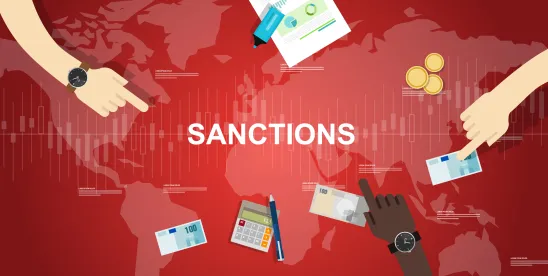The primary objective of this guidance is to ensure industry compliance with export controls and help businesses identify risks associated with circumvention of export restrictions directed against the Russian military-industrial complex. The joint guidance identifies the following priority areas: (i)products posing an increased risk of reexport to Russia; (ii) red flag indicators of potential export control and/or sanctions evasion; and (iii) best practices for industry to use to address these red flags and conduct enhanced due diligence. On 24 September 2024, for the first time, the US, Canada, France, Germany, Italy, Japan, the UK and the European Union (collectively, the G7) issued joint guidance aimed at preventing the evasion of export controls and sanctions imposed on Russia. The guidance highlights several key focus areas, particularly the identification of items that are at a heightened risk of diversion to Russia. These items are included on the Common High Priority List (CHPL). The primary goals of this guidance are to safeguard these items from misappropriation, prevent reputational damage and reduce liability risks, all while maintaining the effectiveness of coordinated export controls and sanctions. The CHPL categorises these items into four tiers:
- Tier 1 items are of the highest concern due to their critical roles in advanced weapon systems and the limited number of global suppliers available to provide them.
- Tier 2 items encompass additional electronics that Russia may prefer to source from G7 nations despite some domestic production capabilities.
- Tiers 3 and 4 include various electronic and mechanical components, emphasising the diverse nature of items that could potentially be misused in military applications.
To assist industry stakeholders in navigating these risks, the G7 has identified key red flag indicators that may signify potential evasion of export controls and sanctions. These indicators include sudden changes in business activities following Russia’s invasion of Ukraine, inaccuracies or omissions in documentation, and attempts to obscure end users through complex shipping routes. Additional red flags encompass vague or incomplete transaction details and unusual payment practices that may suggest attempts to circumvent sanctions. For a more comprehensive description of each tier please refer to the guidance linked above.
In addition to these indicators, the guidance outlines best practices for enhanced due diligence. It emphasises the necessity for companies to rigorously screen all parties involved in transactions against applicable sanctions lists for each G7 jurisdiction.
When red flags are identified, companies are urged to conduct thorough investigations, including requesting further information about the parties involved and their intended end uses, and ensuring written certifications that items will not be sold to sanctioned parties. For more information on best practices, please refer to the guidance linked above.
This landmark initiative reflects the G7’s ongoing commitment to combat the diversion of essential items to Russia and underscores the heightened expectations for industry participation in preventing sanction evasion. As geopolitical tensions evolve, the G7 nations will continue to prioritise enforcement actions related to these critical issues, reinforcing the importance of vigilance and compliance within the global trading community.



 />i
/>i

